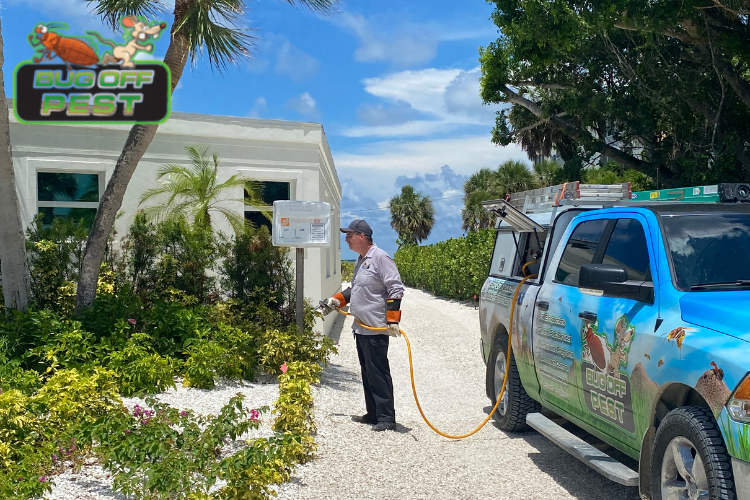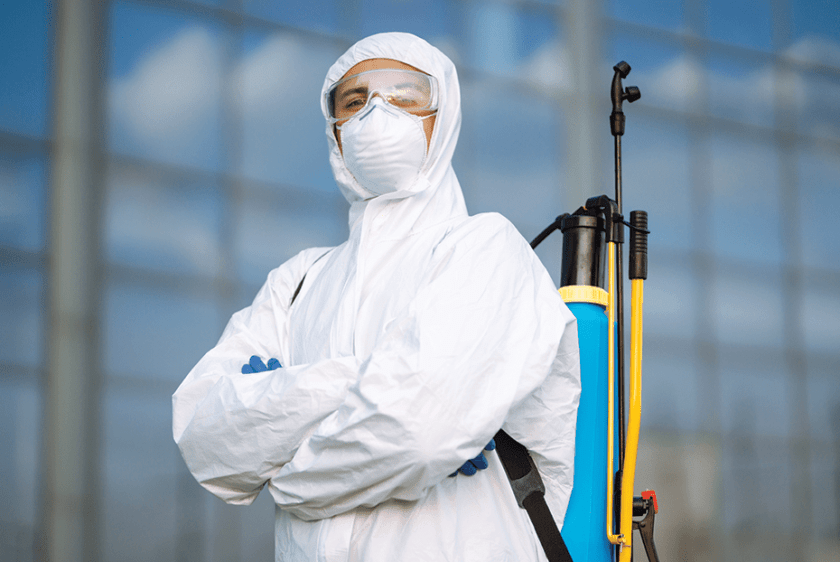Experience highly effective Pest Control in Port Charlotte for complete extermination.
Checking Out Ingenious Methods and Products for Effective Parasite Control
The landscape of bug control is progressing, noted by the appearance of cutting-edge methods and items designed to boost performance and sustainability. From wise traps geared up with sophisticated surveillance systems to biological approaches that use all-natural predators, these innovations provide a standard change in exactly how we come close to pest management.
Smart Traps and Monitoring Equipments
Exactly how can modern innovation boost pest management? One significant innovation is the advancement of wise traps and keeping an eye on systems, which give real-time information and analytics for efficient insect control. These systems make use of sensors and cordless innovation to discover parasite activity, notifying building supervisors and bug control experts to invasions prior to they intensify.
Smart catches are outfitted with functions such as lure terminals that attract insects and capture them efficiently. These catches can be checked from another location, permitting prompt interventions and lessening the demand for substantial chemical applications. The assimilation of maker discovering algorithms allows these systems to differentiate between target parasites and non-target varieties, enhancing the accuracy of bug control measures.
Furthermore, the data accumulated from clever traps can be assessed to recognize patterns in parasite actions and ecological factors adding to invasions (Pest Control in Port Charlotte). This info is vital for creating targeted bug administration methods tailored to details environments. By welcoming clever traps and keeping track of systems, insect control experts can improve their operational efficiency and lower the environmental effect of parasite monitoring, eventually causing much safer and extra sustainable practices in the industry
Biological Insect Control Techniques
Utilizing all-natural predators and parasites, biological insect control approaches offer an eco-friendly option to chemical treatments. This strategy includes the introduction or improvement of particular organisms that can naturally manage pest populaces, thus minimizing reliance on synthetic chemicals. Common examples consist of using ladybugs to control aphid problems and parasitic wasps to target caterpillars.

Organic control can be categorized right into 3 major strategies: timeless, augmentative, and preservation. Timeless biological control entails importing all-natural enemies from the pest's native habitat, while augmentative control involves boosting the population of existing natural adversaries through releases. Conservation strategies concentrate on creating conditions that sustain these beneficial microorganisms in the community.
It frequently calls for an extensive assessment of insect dynamics and the life cycles of both the bugs and their all-natural opponents. As understanding of environmental issues expands, biological insect control methods are increasingly identified for their lasting function in incorporated parasite administration programs.
Eco-Friendly Chemical Alternatives
Green chemical alternatives offer a practical service for insect management that minimizes environmental effect while effectively regulating parasite populations. These alternatives are originated from all-natural sources and are thoroughly formulated to target specific pests without damaging beneficial microorganisms, making them a crucial component of lasting pest control methods.
Amongst one of check here the most efficient environment-friendly options are plant-based pesticides, such as neem oil and pyrethrin, which are acquired from the seeds and blossoms of different plants. These materials interrupt the life cycles of insects, lowering their populations without the hazardous results connected with conventional pesticides - Pest Control in Port Charlotte. Additionally, crucial oils like peppermint and clove oil show repellent buildings, better improving their energy in insect monitoring

Moreover, environment-friendly chemical alternatives frequently damage down much more swiftly in the setting, decreasing the threat of soil and water contamination. This characteristic aligns with the increasing consumer need for lasting methods in farming and city bug control. As research continues to development, the development of cutting-edge environment-friendly formulas will certainly further improve efficiency and expand application areas, making it possible for pest administration specialists to adopt greener, extra liable approaches in their practices while protecting human wellness and the atmosphere.
Scent Interruption Techniques
An additional innovative strategy in lasting their explanation bug administration is using scent disruption methods. These approaches exploit the all-natural chemical signals, or pheromones, that site insects utilize for interaction, especially in mating behaviors. By interrupting these signals, pest populaces can be efficiently handled without considering dangerous chemicals.
Pheromone traps are generally utilized in this technique. These catches use synthetic variations of insect pheromones to draw male bugs, consequently reducing their ability to find females and duplicate. Gradually, this can lead to a substantial decline in bug populaces. Additionally, the launch of repellent pheromones can create confusion amongst bugs, even more hindering their breeding procedures - Pest Control in Port Charlotte.

Integrated Parasite Monitoring Methods
Efficient bug control frequently requires a detailed strategy, and Integrated Insect Monitoring (IPM) techniques offer a framework for achieving this goal. IPM integrates various monitoring methods to decrease insect populations while reducing dependence on chemical pesticides. This multifaceted method starts with extensive surveillance and recognition of bugs, enabling for targeted treatments based upon specific bug pressures.
Cultural practices, such as plant turning and cleanliness, play a vital duty in preventing parasite facility. Biological controls, including natural predators and parasitoids, are used to maintain insect populaces at workable levels. When essential, careful chemical therapies are used, highlighting lower poisoning to non-target species and the setting.
Furthermore, education and learning and outreach are integral parts of IPM, advertising recognition amongst stakeholders concerning sustainable methods and pest life process. The versatility of IPM enables professionals to respond properly to transforming pest dynamics and environmental conditions. By utilizing this holistic method, IPM not just enhances bug control efficiency yet additionally adds to lasting environmental balance. Ultimately, Integrated Insect Management represents a forward-thinking remedy that straightens farming performance with environmental stewardship, making it crucial in modern insect control strategies.

Conclusion
In conclusion, the integration of ingenious strategies and products for efficient insect control stands for a significant development in lasting parasite administration. Smart traps and monitoring systems, organic bug control approaches, green chemical options, and scent disruption strategies collectively improve the effectiveness of bug administration methods. By embracing these methods, the reliance on conventional chemicals can be minimized, advertising environmental health and wellness while making sure effective pest control. Proceeded r & d in these areas will certainly better improve insect administration practices.